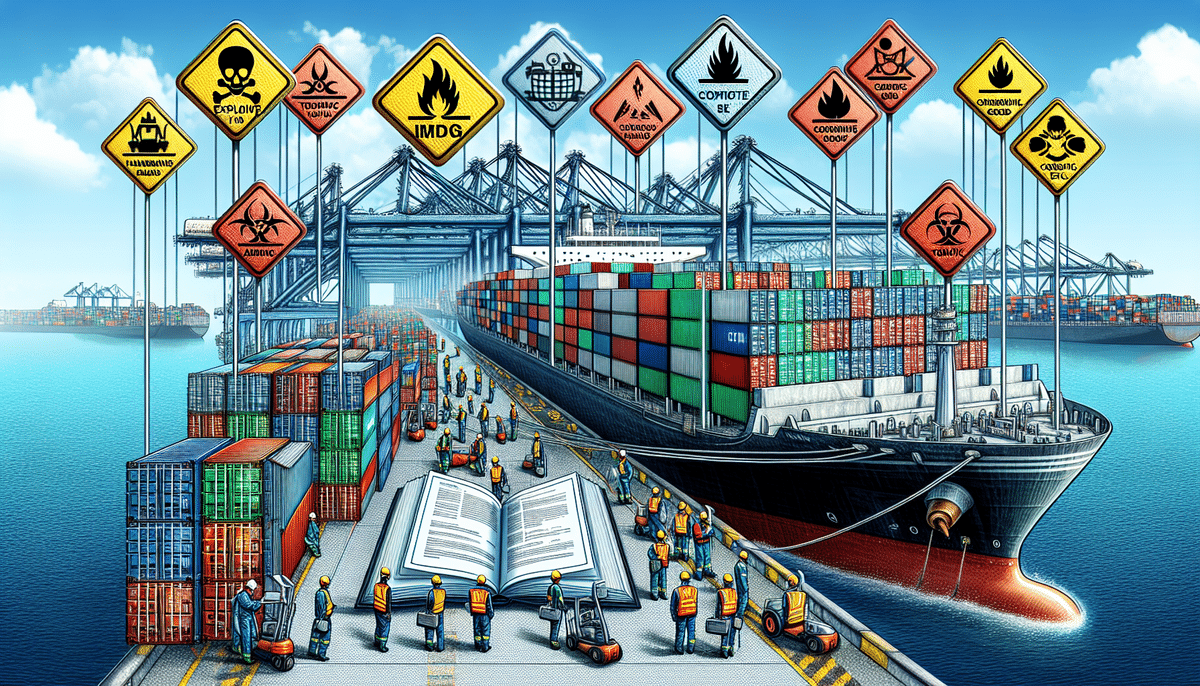A Comprehensive Guide to International Shipping Regulations
Ensuring compliance with international shipping regulations is essential for businesses engaged in global trade. From customs procedures to tariffs and taxes, numerous factors must be considered when shipping products across borders. This comprehensive guide provides detailed insights to help businesses navigate and comply with international shipping regulations effectively.
Understanding International Shipping Laws and Regulations
International shipping laws and regulations are established to guarantee the safe and secure transport of goods across borders. These regulations encompass various areas, including customs procedures, documentation requirements, and the transportation of dangerous goods. Understanding and adhering to these laws is crucial for businesses to avoid legal issues and shipping delays.
Key Aspects of International Shipping Regulations:
- Customs Procedures: Involves the clearance of goods through customs authorities, ensuring compliance with import and export laws.
- Documentation Requirements: Essential paperwork such as bills of lading, commercial invoices, and export licenses must be accurately prepared.
- Dangerous Goods Transportation: Regulations for handling and transporting hazardous materials safely.
Failure to comply with these regulations can lead to significant delays, fines, or even seizure of goods by customs officials. For more detailed information, refer to the U.S. Customs and Border Protection guidelines.
Key Factors to Consider When Shipping Internationally
Several critical factors influence the international shipping process. Understanding these can streamline operations and reduce potential issues.
Important Factors Include:
- Type of Goods: Different products may be subject to specific regulations and handling requirements.
- Destination Country’s Import Laws: Each country has unique import regulations that must be adhered to.
- Carrier’s Policies: Shipping carriers have their own policies and procedures that must be followed.
- Shipping Costs: Varies based on destination, package size, weight, and shipping method. Comparing rates from different carriers is advisable.
- Packaging: Sturdy and protective packaging is essential to withstand international transit conditions.
For insights into shipping costs, the Statista report on international shipping costs provides valuable data.
Ensuring Compliance with International Shipping Regulations
Compliance is paramount for the successful shipment of goods internationally. Implementing robust processes and procedures ensures adherence to all relevant regulations.
Steps to Ensure Compliance:
- Proper Documentation and Labeling: Accurate and complete documentation is essential.
- Adherence to Dangerous Goods Regulations: Follow specific guidelines for hazardous materials.
- Accurate Customs Declarations: Provide truthful and precise information on customs forms.
- Partnering with Reputable Carriers: Choose carriers experienced in international shipping.
Staying updated with regulatory changes is crucial. Regularly consult resources like the European Commission’s customs information to stay informed about the latest regulations.
The Role of Customs in International Shipping
Customs authorities play a vital role in international shipping by enforcing import and export laws, collecting duties and taxes, and inspecting shipments for compliance.
Customs Responsibilities Include:
- Enforcing Import and Export Laws: Ensuring that goods comply with the legal standards of the destination country.
- Collecting Duties and Taxes: Assessing and collecting applicable tariffs and taxes on imported goods.
- Inspecting Shipments: Verifying the contents of shipments to prevent illegal activities and ensure compliance.
Understanding the specific customs requirements of the destination country is essential. The Canada Border Services Agency provides comprehensive information on their customs procedures.
Common Challenges Faced by Businesses in International Shipping
International shipping presents several challenges that businesses must overcome to ensure smooth operations.
Typical Challenges Include:
- Customs Delays: Incomplete or inaccurate documentation can lead to significant delays.
- Language Barriers: Miscommunication can result in errors in shipping and handling.
- Compliance with Import Laws: Navigating the complex import regulations of different countries.
- High Shipping Costs: Managing and optimizing shipping expenses.
- Lack of Visibility and Tracking: Difficulty in tracking shipments across different countries and time zones.
- Cultural Differences: Understanding and adapting to diverse business practices and customs.
To mitigate these challenges, businesses should invest in advanced tracking systems and work with experienced shipping partners. The Investopedia guide on freight forwarding offers valuable insights.
Best Practices for Shipping Dangerous Goods Internationally
Shipping dangerous goods internationally requires meticulous planning and adherence to specific regulations to ensure safety and compliance.
Best Practices Include:
- Proper Classification: Accurately classify goods to determine the necessary handling and documentation.
- Correct Labeling and Packaging: Use appropriate labels and secure packaging to prevent accidents.
- Understanding Country-Specific Regulations: Each country may have unique requirements for dangerous goods.
- Training Personnel: Ensure that all staff involved are trained in handling hazardous materials.
- Partnering with Experienced Logistics Providers: Collaborate with specialists in dangerous goods transportation.
For detailed regulations, refer to the International Maritime Organization’s guidelines on dangerous goods.
Navigating Tariffs and Taxes in International Shipping
Tariffs and taxes significantly impact the cost structure of international shipping. A thorough understanding of these financial aspects is essential for budgeting and pricing strategies.
Top Tips for Managing Tariffs and Taxes:
- Research Import Laws: Understand the specific tariffs and taxes applicable in the destination country.
- Determine Duties and Taxes: Different types of duties and taxes may apply based on the goods' nature and value.
- Utilize Customs Brokers: Engage with customs brokers to navigate complex tariff structures.
- Leverage Trade Agreements: Take advantage of existing trade agreements that may reduce or eliminate tariffs.
- Understand De Minimis Values: Some goods below a certain value may be exempt from duties and taxes.
Consult the Office of the United States Trade Representative for information on trade agreements that could benefit your shipping operations.
Choosing the Right Carrier for Your International Shipment
Selecting the appropriate carrier is crucial for ensuring timely and cost-effective international shipments.
Factors to Consider When Choosing a Carrier:
- Network and Coverage: Ensure the carrier has a robust network in the destination country.
- Transit Times: Evaluate the carrier’s delivery speed to meet your business needs.
- Pricing: Compare rates from various carriers to find the most cost-effective option.
- Compliance with Regulations: Choose carriers experienced in handling international shipping regulations.
- Customer Service: Reliable customer support can assist in resolving issues promptly.
- Carrier Reputation: Research carrier reviews and ratings to assess reliability and performance.
For carrier comparisons, resources like the ShipBob blog on shipping carriers can be helpful.
The Importance of Proper Documentation in International Shipping
Accurate and complete documentation is vital for the seamless movement of goods across borders. Inadequate documentation can lead to customs delays, fines, or shipment rejections.
Essential Documentation Includes:
- Bill of Lading: Serves as a contract between the shipper and carrier, detailing shipment specifics.
- Commercial Invoice: Provides a detailed account of the goods being shipped, including value and purpose.
- Customs Declarations: Required forms that declare the nature and value of the goods to customs authorities.
- Export Licenses: Necessary for shipping certain regulated goods internationally.
Ensure all documentation complies with the destination country’s requirements. The U.S. Department of Commerce’s export documentation guide offers comprehensive information.
Avoiding Common Mistakes in International Shipping
Many businesses encounter similar pitfalls when engaging in international shipping. Being aware of these common mistakes can help avoid operational hiccups.
Frequent Mistakes to Avoid:
- Incorrect or Incomplete Documentation: Always double-check all paperwork for accuracy and completeness.
- Non-Compliance with Customs Regulations: Stay informed about and comply with all relevant laws and regulations.
- Inadequate Packaging or Labeling: Use appropriate materials and clear labels to protect goods and inform handlers.
- Poor Communication: Maintain clear and consistent communication with all parties involved in the shipping process.
- Ignoring Insurance: Protect your shipments with adequate insurance coverage.
Implementing thorough checks and collaborating with experienced shipping partners can mitigate these risks. The American Express guide on international shipping mistakes provides additional insights.
The Future of International Shipping Regulations: Trends and Developments
International shipping regulations are continuously evolving in response to technological advancements and global geopolitical changes. Staying ahead of these trends is crucial for maintaining compliance and competitive advantage.
Emerging Trends and Developments:
- Increased Automation: Automation of customs processes is enhancing efficiency and reducing human error.
- Advanced Tracking and Supply Chain Management: Enhanced tracking technologies provide real-time visibility into shipments.
- Environmental Regulations: Stricter regulations aimed at reducing the environmental impact of shipping, such as emissions restrictions.
- Geopolitical Influences: Changes in international relations can lead to new trade agreements or modified regulations.
To stay informed, regularly consult resources like the World Trade Organization for updates on international trade and shipping regulations.
Conclusion
International shipping regulations are complex and pose numerous challenges for businesses. By understanding key factors, ensuring compliance, and adopting best practices, businesses can navigate the intricacies of global trade effectively. Partnering with experienced shipping providers and staying informed about emerging trends will further enhance your ability to maintain a competitive edge in the international marketplace.




















